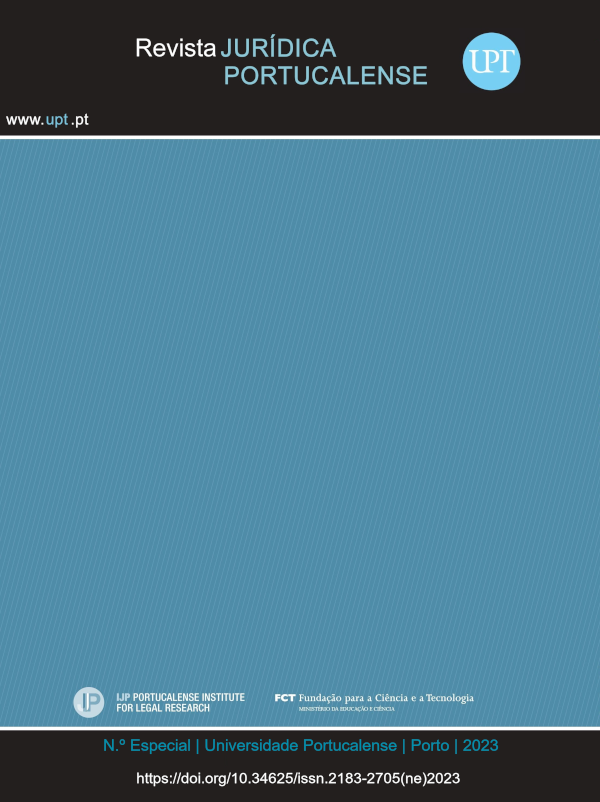Os consumidores da era digital: Que lugar para o direito à informação?
Mots-clés :
Consumidores; informação; poder de mercado; comunicação comercialRésumé
A proteção dos consumidores funda-se tradicionalmente na assimetria de informação face aos profissionais. No entanto, a transição para a sociedade da informação conduziu a uma mudança de paradigma nas relações de mercado. Com enfoque no regime jurídico da publicidade, o presente estudo aborda os elementos determinantes das decisões económicas dos consumidores na era digital, procurando aferir se subsiste ainda fundamento para os deveres de informação consagrados pelo legislador.
Références
ALONSO ESPINOSA, Francisco José e LÁZARO SÁNCHEZ, Emilio. Nociones jurídicas básicas. Derecho de la publicidad. In LÁZARO SÁNCHEZ, Emilio, Derecho de la publicidad. Madrid: Civitas. 2012, pp. 25 a 46.
AMORIM, Ana Clara Azevedo de. Comunicação Comercial e Direitos dos Consumidores: Desafios da Sociedade da Informação. Revista de Direito Intelectual, n.º 1. 2015, pp. 165-189.
— A tutela da lealdade nas relações de mercado. A propósito do ilícito publicitário. Coimbra: Almedina, 2017.
— Manual de Direito da Publicidade. 2.ª edição. Lisboa: Petrony Editora, 2023.
ANDRADE, José Carlos Vieira de. Os direitos dos consumidores como direitos fundamentais na Constituição Portuguesa de 1976. Boletim da Faculdade de Direito. Universidade de Coimbra, volume LXXVIII. 2002, pp. 43-64.
BAUDRILLARD, Jean. A sociedade de consumo. Lisboa: Edições 70. 1995.
CASTRO, João Pinto e. Comunicação de Marketing. 2.ª edição. Lisboa: Edições Sílabo. 2007.
COTEANU, Cristina. Cyber consumer law and unfair trading practices, Hampshire: Ashgate. 2005.
KAPFERER, Jean-Noël. Rumeurs. Le plus vieux média du monde, Paris: Éditions du Seuil. 1990.
MAQUEIRA, Juan Manuel e BRUQUE, Sebastián. Marketing 2.0. El nuevo marketing en la Web de las Redes Sociales. Madrid: RA-MA Editorial. 2009.
MATA, Eugénia e VALÉRIO, Nuno. História Económica de Portugal: uma perspectiva global. 2.ª edição. Lisboa: Editorial Presença. 2003.
MICKLITZ, Hans-Wolfgang. Irreführende Werbung. In HEERMANN, Peter. Münchener Kommentar zum Lauterkeitsrecht, volume I. Munique: Verlag C. H. Beck. 2006, pp. 778-886.
PICKTON, David e BRODERICK, Amanda. Integrated Marketing Communications. Nova Jersey: Prentice Hall. 2001
REEVES, Rosser. Reality in Advertising, Nova Iorque: Alfred Knopf. 1961.
RIES, Al e RIES, Laura. A Queda da publicidade e a ascensão das Relações Públicas. Lisboa: Editorial Notícias. 2003.
SACCOMANI, Alessandro. Le nozione di consomatore e di consomatore medio nella Direttiva 2005/29/CE. In MINERVINI, Enrico e CARLEO, Rossi. Le pratiche commerciali sleali. Direttiva comunitaria ed ordinamento italiano. Milão: Giuffrè Editore. 2007, pp. 141-165.
SCHMITT, Bernd. Experiential Marketing. Nova Iorque: The Free Press. 1999.
SCHULTZ, Don. Redesigning marketing to fit a different marketplace. In KITCHEN, Philip. The Future of Marketing: Critical 21st Century Perspectives. Nova Iorque: Palgrave Macmillan. 2003, pp. 12-40.
SCHULTZ, Don, TANNENBAUM, Santley e LAUTERBORN, Robert. The new marketing paradigm. Chicago: NTC Business Books. 1994.
SCOTT, David Meerman. The new rules of Marketing & PR. Nova Jersey: Wiley. 2007.
SEYBOLD, Patricia. The customer revolution. Londres: Business Books, 2002.
WILHELMSSON, Thomas. Consumer Law and Social Justice. In RAMSAY, Iain. Consumer law in the global economy. National and international dimensions. Hampshire: Ashgate. 1997, pp. 217-232.
Téléchargements
Publiée
Comment citer
Numéro
Rubrique
Licence
© Revista Jurídica Portucalense 2023

Ce travail est disponible sous la licence Creative Commons Attribution 4.0 International .
Authors who published in the journal agree to the following terms:
- The Authors grant the Journal the right of first publication, and other non-exclusive publishing rights, licensed under the Creative Commons Attribution License which allows the sharing of work with recognition of its initial publication in this journal.
- Authors are able to take on additional contracts separately, non-exclusive distribution of the version of the paper published in this journal (ex .: publish in an institutional repository or as a chapter in a book), with an acknowledgement of its initial publication in this journal.
- Authors are permitted and encouraged to post and distribute their work online (eg .: in institutional repositories or on their website) at any point before or during the submission process, as it can lead to productive exchanges, as well as increase the impact and the citation of published work (See The Effect of Open Access).
RJP does not apply submission, publication or any other fees of any nature. Its articles are open access, with the goal of disseminating scientific knowledge and the debate of legal topics in the area of Legal Sciences.






